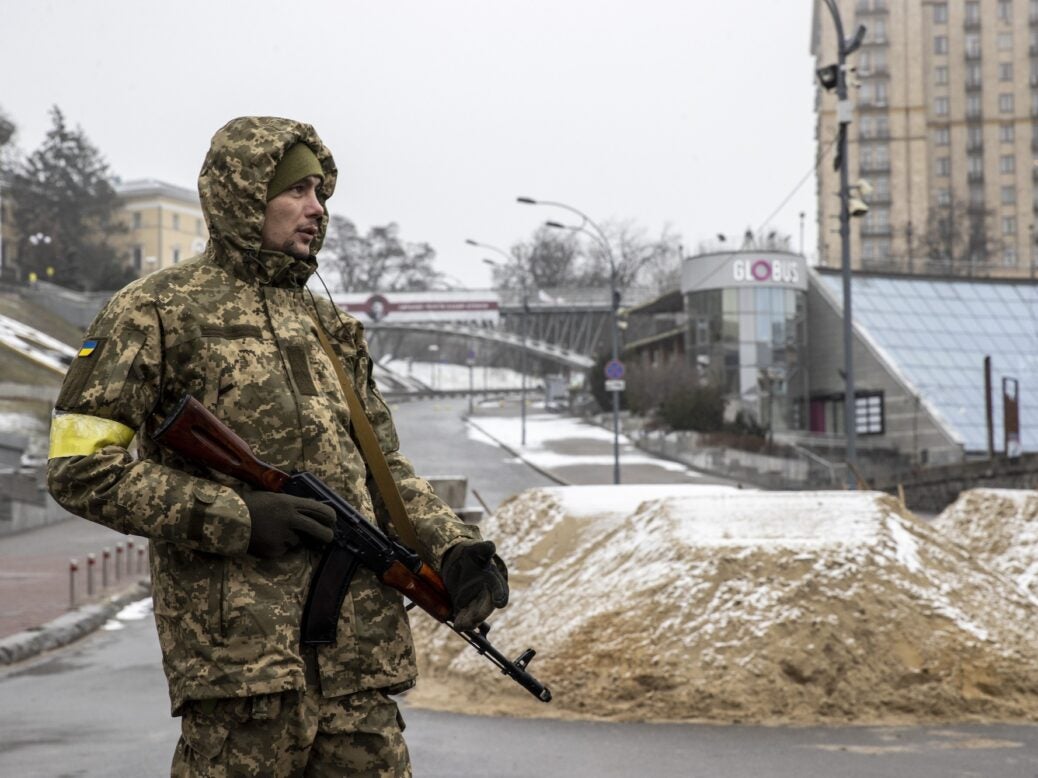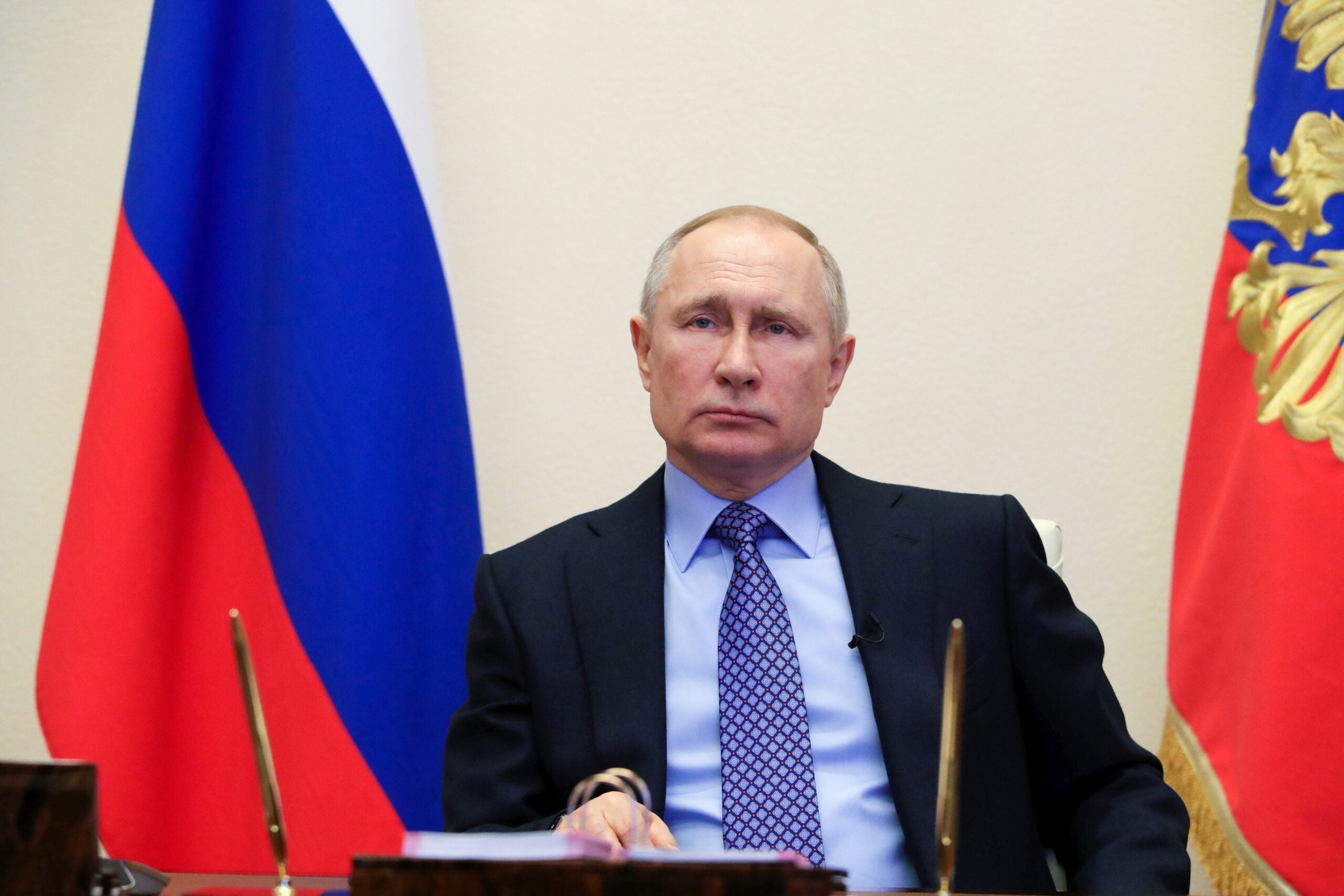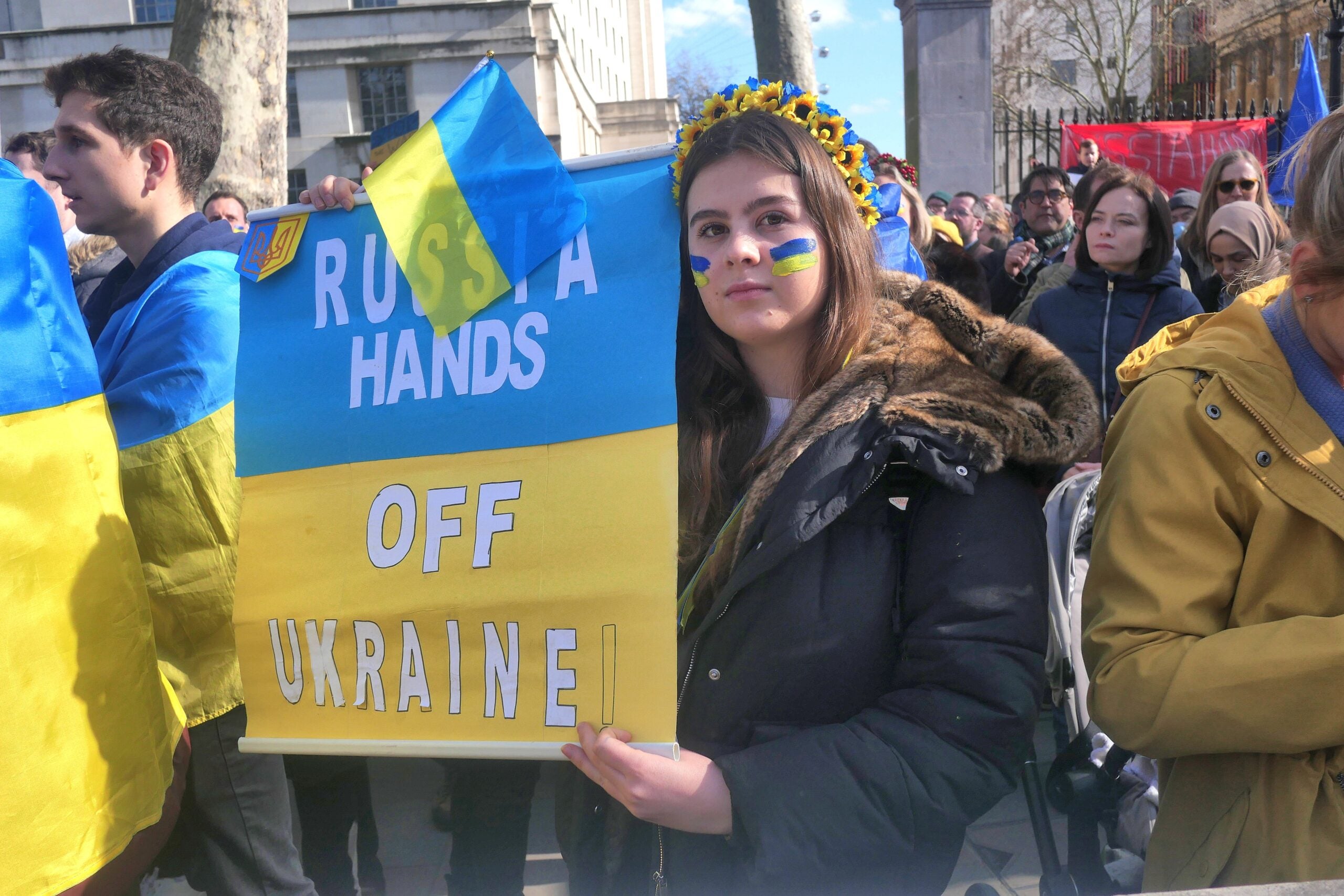
As the devastation in Ukraine continues as a result of the Russian invasion less than a week ago, making sense of what comes next seems a difficult, near impossible task — but it’s an important one, writes Former British diplomat David Landsman
It’s not just the enormity of what we have seen unfold in Ukraine in the past few days, but also that so much of it has taken us by surprise. Although making sense of what has happened already and what may come next may seem a difficult task, it’s an important one. This is particularly true if we’re going to begin to understand how the Russian invasion of Ukraine will affect other facets of the world apart from the geopolitical — from business to financial sectors.
First things first: We now know that we should have believed the military intelligence which pointed to a full-scale invasion of Ukraine at the hands of Russian president Vladimir Putin. The tragic irony of intelligence is that as soon as it’s released for public consumption, it’s less likely to be believed. Some are now arguing that Putin has become unstable, which, due to the secretive nature of the Kremlin, may be difficult to confirm. One thing we can see right before our eyes is that the videos of him meeting his senior advisers suggest that only ‘yes-men’ are invited. That should be taken as a warning to all leaders. Additionally, the announcement about an increase in Russia’s nuclear readiness — if not yet a cause for alarm — is a vital reminder that this conflict is deadly serious.
The surprises haven’t just been on Putin’s side. The initial Western response was probably as patchy as he had been expecting, but since then it has moved up several gears. US sanctions were to be expected, but the European effort has ratcheted up several gears, including landmark German decisions on defence spending, to Switzerland’s surprise participation in financial sanctions which broke hundreds of years of neutrality for them. The impact of some of these decisions will take months, if not years, to be seen — but the near collapse of the Russian economy in days has shown that enough of these measures have sharp teeth. While the West has collectively said it will fall short of direct military action (including a no-fly zone over Ukraine), NATO and EU countries are already providing weapons and other support to the Ukrainian forces.
After the surprises of the past week, it would be foolish to try to predict the course of the next few days, but there are relatively few possible paths and some credible central assumptions off which we can all try to plan.
First, there is no sign that Putin will abandon the invasion, and Russia may still be able to achieve military superiority. But — assuming that Ukrainians continue to resist with substantial Western support — Putin will not be able to win ‘cleanly’ through imposing a stable pro-Russian regime in Kyiv. While he tries to consolidate power in Ukraine, there’s a risk that he may be tempted to launch some kind of action (probably indirect and deniable) in, for example, the Baltics — though the strong Western reaction so far be enough of a deterrent. Along with a long war in Ukraine with significant numbers of refugees, tension will continue around the wider region for some time.
Sooner or later, there will be an attempt — on the part of Russia or Ukraine or both — to discuss a durable peace. Meanwhile, Putin may start to come under greater pressure in Russia, as the economy deteriorates and casualties mount. It is hard to see how popular demonstrations could be enough to topple him without a significant element in the security and State apparatus turning against him. It’s certainly possible, though we’re unlikely to know until it happens.
This is where the West needs to act with great caution. If the conflict becomes about outside-imposed regime change, Putin would have nothing to lose — and that’s very dangerous. If the West suggests that anyone who’s had a part in his regime is a war criminal, any internal opposition will have nothing to gain from any attempts to topple Putin.
It’s quite possible that, when the shooting stops, we may still have to do some kind of deal with Putin. Yes, that’s what he wants, but giving him something is better than endless bloodshed in Ukraine, provided that something is not control over the future destiny of Ukraine which, as I’ve suggested, is now ultimately not credible.
There’s every chance that this conflict will drag on painfully for some time, which is first and foremost tragic for Ukraine, but also hard to deal with for a West which has become used to expect instant solutions. We may be in this for the long haul, with a prolonged break in most connections between Russia and at least the West. That at least offers a kind of (depressing) certainty, which is something that business leaders should consider in the coming days and months.
As the war continues, images of the conflict will be visible on our TV screens and social media. Western governments will likely continue step up their support for Ukraine even more, but will experience frustration as, short of starting the next World War, there is little that they can do to bring a stop to the horrifying scenes of brutality.
This frustration is likely to play itself out in an attempt to ‘do something‘ or to ‘send a message‘ in both the political and business worlds, which could cause real problems for those who get caught in the campaigning crossfire. Businesses will be easier to criticise than politicians, especially now when companies are increasingly quick to display their ESG credentials and are expected to walk the walk on what’s a top ESG issue of our time. This could go in unexpected directions.
This displays a need for those with international connections to think ahead. My advice is that now’s the time to review business activities, relationships and people, in Russia and beyond. You can’t rely on the facts as you know them, but business leaders need to be prepared to look through the lens of those who are angry and in no mood to recognise the difference between those directly connected to the Russian government and everyone else. Make sure your arguments are clear and know who needs to hear them.
To end on a note of optimism for the longer term, I’m not persuaded by the current hype that we are entering another decades-long Cold War. Today’s world is too interconnected for that. The time will come, probably sooner than we think, when we will see the barriers which are now being erected start coming down, with Ukraine able to continue on the path it chooses for itself. In short, we need to plan for the short, medium and long term, even if they seem to point in opposite directions.
Image: Anadolu Agency/Getty Images Contributor








